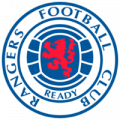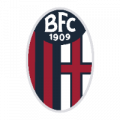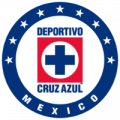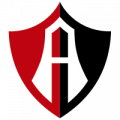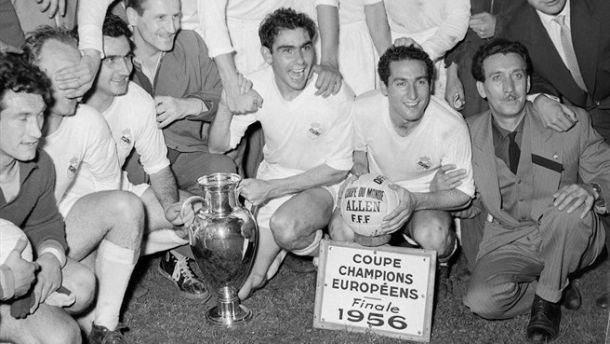Real Madrid is one of, if not the biggest footballing name on the planet. Their millions of fans are not only hopeful of winning the Champions League every year but are expectant after their rich history in club football’s most prestigious competition. They, however, have not lifted a European cup since Zinedine Zidane volleyed home the winner against Bayer Leverkusen back in 2002. After a 12-year absence, Los Blancos have eventually reached the final once more and will play local rivals Atletico Madrid in Lisbon. If they do manage to overcome a red hot Atletico side then their La Decima dream will come to fruition. A record 10 titles would be an extraordinary achievement for Real. The closest to them are AC Milan with seven.
Ronaldo, Bale and Benzema gracing the same pitch as Costa, Courtois and Villa promises to be a mesmerizing spectacle in the first final involving two teams from the same city. Real have of course had to win it nine previous times in the competition’s 59-year history to set themselves up for what could be a historic landmark. This is how they have come to find themselves on the cusp of La Decima.
The first of many - Real Madrid 4-3 Stade de Reims: 13 June 1956
The European Cup was in it’s inaugural season. It boasted 16 teams including Sporting Lisbon, Hibernian and AC Milan. In a format where every tie was a knock-out round, Real Madrid began their campaign against Swiss side Servette. Already a giant in their own country, Les Grenats organised the Coupe des Nations, the European Cup’s predecessor. With an average age of 28, two years older than the current squad, the team managed by future Spain boss Jose Villalonga came out of Geneva with a 2-0 victory. This was then followed up by a thumping 5-0 win at the Santiago Bernabeu due to goals from di Stefano, Joseito, Hector Rial and Molowny. Madrid scored a total of 20 goals in Europe that season, 14 came from this quadruplet.
They inevitably went on to build on this success, nervously overcoming Partizan Belgrade and AC Milan en route to the final at France’s national stadium. 38,000 were in attendance in Paris with the majority assumingly supporting local club Reims, the Spanish side’s opponents for the evening.
"There was this will to succeed. To be always in a leading role on and off the pitch, that's why Madrid won so many titles" - Gento.
Reims scored twice in the opening 10 minutes only for the ‘away’ side to claw their way back into the game with di Stefano starting the comeback. Hector Rial got his fourth goal of the competition to draw level before the break. Momentum was with Real Madrid so it was nothing short of unexpected when Remis retook their lead through Hidalgo just past the hour mark. A deflected shot, which perhaps should have been recorded as an own goal, tied things up once more only for Rial to wrap up the game.
This could be seen as the most vital fightback in the history of Spanish football as Madrid had to win the trophy to compete the following year, due to the reigning champions falling short in the league. Raymond Kopa described the game as “The nicest final I have ever played in.” It suited Reims’ number nine down to the ground because he had already signed a contract with the victors for the following year. Kopa went on to win three successive European Cups and two Premiea Division titles during his stint in Spain.
Defending the title - Real Madrid 2-0 Fiorentina: 30 May 1957
The team were reaping the rewards of the hard work put in by the club’s most iconic owner, Santiago Bernabeu, and arguably General Franco. General Franco had an apparent fondness for Real Madrid and, like his style of politics, wanted his side to dominate. Winning was a must and some accused the club of corruption in some domestic games. During a match with Barcelona, the director of state security told the Catalans that they were only in the country because of the regime's generosity. Barca went on to lose 11-1.
In an attempt to distance themselves from this stereotype the club removed ‘Real’ from it’s own name and subsequently stripped the crown off the famous badge. This was all ten years before the final against Fiorentina, the name and badge had already been restored by this point. There was no suspicion of corruption away from domestic duties though, the holders scraping through the tie against Rapid Wien in a play-off game before narrowly beating Manchester United 5-3 on aggregate in the semi-finals.
The conclusion to the competition was staged in the White’s own back yard, this time 124,000 people crammed inside the stadium. The opening goal of the game eventually came when the Tuscans conceded a 70th minute penalty, given for a foul on Enrique Mateos by Ardicio Magnini. Controversy surrounded the decision as Dutch referee, Leo Horn, ignored his assistant when the linesman was signaling that Mateos had been in an offside position. The fact that the foul was committed outside of the box would have only angered the fans of Fiorentina further. Di Stefano put away the spotkick well when he might have been put off by the oncoming 'keeper, who was four-yards off his line when the ball beat him.
Francisco Gento made sure of the victory when he doubled the advantage six minutes later. The trophy was awarded to captain Miguel Munoz by General Franco in the stands. Another trophy was won that year but this was an individual honour presented to one of the club’s greatest goalscorers. The Ballon d’Or was awarded to striker Alfredo di Stefano as he scored 43 goals in 43 games across all competitions. The result was a landslide in the end, the closest to di Stefano’s 72 points was Billy Wright with 19, but Alfredo did not want to take to spotlight off his beloved Madrid.
Three is the magic number - Real Madrid 3-2 AC Milan: 28 May 1958
Reaching the final was beginning to become customary for the side from the Spanish capital. This was their third in a row, a feat only reached by three different sides since 1958 and something that has failed to happen since Bayern Munich did it in 1976. Unfortunately, this final was overshadowed by Manchester United’s air disaster in Munich. The Busby Babes stopped to refuel in Germany after a game with Crvena Zvezda in Yugoslavia but the plane crashed before the team could even take off and eight players perished, one of the most tragic events in football history and one that will never be forgotten.
Despite an obvious need for mental recovery, the players and manager duly soldiered on and gave AC Milan a run for their money in the semi-final. Real Madrid, meanwhile, were breezing past Vasas in a reasonably comfortable route to the final in Brussels. The team were now under the management of Luis Carniglia and were relishing the time they had under the Argentinian. Antwerp were first to fall and how they fell, an 8-1 aggregate victory gave Madrid the platform to go on and retain their crown. They then dismissed Sevilla 10-2 over the course of two games, the tie was effectively over when di Stefano’s four goals inspired the early pacesetters to an 8-0 home win.
The holders had to show their character in a final once more when Milan took the lead after the interval. Juan Alberto Schiaffino scored an ineffable goal when he latched onto a stray ball bouncing on the edge of the box, the former World Cup winner leathering the ball into the top corner of Juan Alonso’s net. Scoring 138 league goals in his career Schiaffino went on to represent Uruguay and Italy at international level, securing the accolade of the best Uruguayan footballer of all time in a recent poll.
His effort was to be cancelled out by none other than Alfredo di Stefano before Grillo restored the advantage. This was to last just three minutes until Hector Rial brilliantly lobbed the goalkeeper to send the game into extra-time. Gento nicked a winner in the second period of the added 30 minutes to cast his team-mates into delirium. A hat-trick of European trophies was won but this, according to the match winner, was the most difficult of the lot.
Four on the bounce - Real Madrid 2-0 Stade de Reims: 3 June 1959
1959 signalled new beginnings for Spain. The country had recovered from the civil war 20 years earlier and it was finally starting to grow economically. An economic boom named ‘The Spanish miracle’ occurred in 1959 and lasted until 1974, life was good and was even better for fans of the biggest football team in the land.
Many associate the term ‘Galacticos’ with the Real Madrid side formed in the early noughties but the first example, certainly in the club’s history, of a collection of the world’s best players came about in the late fifties. Already boasting di Stefano and Raymond Kopa, Madrid added Ferenc Puskas to their squad. The former Budapest Honved man joined the ranks aged 31 after a two year transfer ban that restricted the Hungarian from joining other squads on the continent. He was the most prolific goalscorer of his generation, scoring 84 goals in 85 caps for an impressive Hungary national team. The award for best goal of the season was named after him in 2008 due to his obvious talents.
The most he could muster up in the European spotlight just two goals though, with one coming from the penalty spot. 21 goals in La Liga only enhanced his reputation but not Madrid’s, who finished 10 points behind great rivals Barcelona; a chasm compared to other seasons in the same era.
The goals weren’t flowing as they once were as they went out to defend their title. A 7-1 victory over Wien being the only game where they scored more than two goals. Atletico Madrid came closest to knocking their neighbours out as the tie finished 2-2. Under today’s rules it would have been Atletico progressing to the final in Germany but, because the away goals rule was not established at this late stage of the competition until 1971, the two met in the neutral city of Zaragoza where the underdogs would succumb to the favourites in a play-off.
This set up a grand stand final at the Neckarstadion in Stuttgart. A repeat of the 1956 final, Stade de Reims looked to get revenge over their previous conquerors. It didn’t quite work out that way. Just Fontaine, the top scorer, didn’t manage to get on the scoresheet for Reims. He left the scoring to Mateos and di Stefano. Puskas was absent from the match with a reported hamstring problem and an early injury to Raymond Kopa may have inspired his former club. This did not have the desired effect as Mateos struck from a tight angle just one minute into the final. Di Stefano sealed the game with a low shot into the bottom left hand corner to ensure a routine victory.
A fantastic fifth - Real Madrid 7-3 Eintracht Frankfurt: 18 May 1960
This 10 goal thriller remains the highest scoring final in both the European Cup or Champions League to date. This hardly bucked the trend as a massive total of 144 goals were scored from the start of the last 16, this is in comparison to the 84 scored on the way to the 2013 final. Madrid kicked-off their campaign against Luxenberg outfit Jeunesse Esch, who fell victim to the excellence of Puskas as he scored four of the seven. They then racked up five more in the Stade Municipal to propel themselves into the next round.
The country of Luxembourg got their own back in a sense when Victor Nurenberg netted a hatt-rick against Real Madrid, who had just knocked out the club from his native country. 26 days later though, five different goal scorers put things right before the 50 minute mark. Barcelona were to meet Real in the first European Cup tie between the two giants. 120,000 people rammed into the Bernabeu to see the home side maintain their 100% home record in the tournament. They did so with a 3-1 victory followed up by the same scoreline at Camp Nou.
Fans didn’t consider it then and why would they? But this was to be Los Blancos’ last win in five years, falling at the last hurdle twice to Benfica and Inter Milan. They made the most of this one though, witnessing arguably the most enthralling final of all time. It was to be hosted at Hampden Park, home to some outstanding encounters at club and international level. This was something even more special, even the first goal sent shockwaves around the ground. This was because it was scored by Richard Kress, a Frankfurt player. The oldest debutant in Bundesliga history had his shining moment taken away from him 10 minutes later when di Stefano equalized. The first of his three goals on the day, slightly overshadowed by Puskas’ four. Frankfurt were the first German representatives and they did themselves proud as they clawed back two goals to further narrow the margin.
Luis Suarez of Barcelona managed to claim the Ballon d’Or in 1960 with Puskas coming second. One surprise exclusion from the top three was di Stefano, the pervious year's winner. His medal from the final in Scotland was to be his last as he departed Madrid for Espanyol in 1964. After a long and successful cearrer at Reak, the now 87-year-old could may well have joined Barca early in his career. The Catalans put in a bid for him while he was at Millonarios. River Plate agreed a fee and di Stefano travelled to Spain to join his new club after it was authorized by FIFA. The Spanish Football Federation had other ideas when they found out he had left Millonarios without permission. The transfer was void. Santiago Bernabeu managed to intervene and secured a deal that would allow the much coveted player to play in Spain for four seasons, two for Real Madrid and two for Barcelona. This sparked protests inside the Barcelona camp, protests that ultimately led the president to resign and di Stefano was handed over to Madrid.
Back with a bang - Real Madrid 2-1 FK Partizan: 11 May 1966
Things had changed in football by the time Real Madrid secured their sixth European trophy. They were no longer the driving force on the continent, that title fell to Benfica. The Portuguese superstars, lead by the recently deceased Eusebio, reached four finals in five years and subsequently won two. Real Madrid enjoyed domestic success, finishing on top of the La Liga table four seasons running. They had something to shout about in Europe too, reaching two finals. They lost both, which by their own high standards was failure. Perhaps this is why the club go through manager after manager in the present day, the standards are too high because of the great work by the team in the fifties. Even Carlo Ancelotti, the man to get them to their first final in over a decade and could deliver them the La Decima dream, is facing rumours of his dismissal.
"He's not managing a normal football club. Sometimes he's managing a circus, sometimes a fantastic outfit in terms of the quality of football they can produce but it's a very difficult club to manage" - Sir Alex Ferguson speaking on the arrival of Mourinho.
Miguel Munoz was the man in charge on the touchline this time around, in his second stint managing the club he captained. He left on his own accord in 1974 after 14 years as coach, the longest time spent as manager of the Whites since has been Vicente del Bosque with four years. The 1965/66 season was the first time they had to compete in the preliminary round as only the holders could move directly into the knock-out phase. Puskas scored all five of his tournament goals that season against Feyenoord in a 6-2 aggregate victory, but Munoz’s team was seemingly no longer about the older individuals. The manager blooded younger players into the side with Grosso, Piri and Velazquez starring in a side branded the “Ye-Ye” team in reference to the chorus of the Beatles song ‘She Loves You’ after five players posed in Beatles wigs for a local magazine.
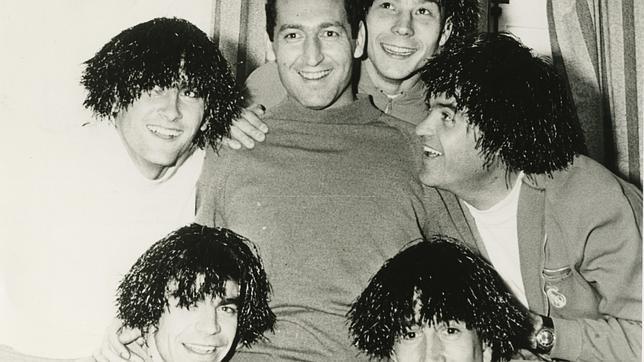
Pirri was an outstanding player who prided himself on his work-rate, stamina and leadership qualities that excelled his age. Not only this but the defensive minded midfielder had an outstanding tendency to bomb forward in search of a goal, the Spaniard notched up 123 goals for Madrid during his career. He was pivotal for a group of players that had to be at their best to defeat Inter Milan in the semis.
FK Partizan awaited Madrid in Brussels. Commonly known as Partizan Belgrade, the Serbian club were enjoying their most successful spell in their history due to a talented crop of players dubbed as the Matekalo’s Babies. This meeting holds great historical connotations as the founders of the club were army veterans who fought against Franco in the Spanish Civil War. It was Velibor Vasovic, gymnast turned footballer, that would open the scoring with a thunderous header. Amancio Amaro weaved in and out of a Partizan defender to then slot the ball through the goalkeeper’s legs and therefore equalize. This sublime bit of skill was matched six minutes later with a longshot by Serena.
Seventh heaven - Juventus 0-1 Real Madrid: 20 May 1998
English, German and Italian sides had dominated the competition for a good three decades which went some way to explaining why just one Iberian club lifted the trophy with the “big ears” in that time period.
Madrid hadn’t even come close for over 10 years. Faltering before the semi-finals on numerous occasions, the six time winners had failed to stamp their authority in Europe and in La Liga. Jupp Heynckes was sacked after guiding his team to stardom due to his shortcomings in the domestic league, a little harsh perhaps? Los Blancos finished in fourth position and fell short of the previous year’s point tally by 29. Maybe not then.
The Champions League had undergone some changes over the years and was trialling the current format in the 1997-98 season after experimenting with a mini-league system. Madrid topped their group with 13 points, sealing a quarter-final with Bayer Leverkusen. The Germans had advanced because they were the ‘best second placed team' in the group stage but they were no match for their opponents over two legs.
A last four clash with champions Borussia Dortmund looked a difficult task to overcome. Fernando Morientes scored his 16th goal of the season before right winger Karembeu gave his side a two goal advantage going into the second leg at the much envied Westfalenstadion. A defence consisting of Christian Panucci, Fernando Sanz, Fernando Hierro and Roberto Carlos shut BVB’s strikers out and ensured a first final since 1981.
A high scoring encounter had been predicted but, with so much at stake, the game developed into cagey affair. Heynckes’ starting XI included a 19-year-old Raul with Predrag Mijatovic and Fernando Morientes ahead of him. With just 20 minutes left a Roberto Carlos volley deflected kindly into the path of Mijatovic, who went round the 'keeper and just about saw the ball home. This sparked mass celebrations from the Montenegrin, who ran off pointing towards and duly collapsing in front of the bench.
Madrid went into the final as underdogs with the goalscorer stating that many predicted they would lose by “three of four goals” in Germany. They more than proved their doubters wrong and came together as a team to triumph over the odds. This was the seventh in the history of the club but has there been a sweeter one?
Eight is great in France - Real Madrid 3-0 Valencia: 24 May 2000
The image of this Champions League was arguably Raul and Morientes celebrating with the Rojigualda proudly draped over their backs. It was a great time to be apart of Spanish football, at least with the club sides, as Barcelona, Valencia and Real Madrid had all progressed to final four.
Starting their campaign in Greece, Los Vikingos were involved in an entertaining 3-3 draw with Olympiacos. Only three further points were dropped from then onwards, a loss to Porto meant the champions of Spain had to win in Sweden to ensure they topped the group. They did just that, coming out of Molde with a 1-0 win.
This enabled Los Merengues to qualify for the second group stage. They couldn’t topple the mighty Bayern Munich but still qualified regardless and set up a quarter-final with Manchester United. The first-leg ended in stalemate, which meant a winner takes all scenario at Old Trafford 15 days later. The game got off to an even start with chances falling for both competitors but an unfortunate Roy Keane own goal killed the game. Half an hour later and the tie was effectively over as Raul added two more. A late Red Devils fightback spearheaded by David Beckham and Paul Scholes was not enough to advance. A great game ended in disappointment for the Premier League giants but at least one Englishman looked ecstatic with the result, former Kopite Steve McManaman.
Bayern Munich were drawn against Real in the semis, meaning the two would face each other four times in one campaign. Unlike in the group stage, Madrid came out worthy winners of the first match and that was enough to see them go through despite losing the penultimate game of the tournament 2-1 in Bavaria. These two would compete endlessly in the next number of years, crossing paths a dozen times in the 15 years that followed with Bayern just edging it with eight wins. They could not muster up the goods in 2014 however, as the European champions were crushed 5-0 over two legs as Real ended their semi-final hoodoo.
Valencia CF were having a magnificent season without actually lifting any trophies. A more defensive style of play was adopted when Hector Cuper took charge at the Mestalla, Los Che conceded the second lowest amount of goals in Spain. The goalscoring exploits of Gaizka Mendieta and Claudio Lopez were not enough for either La Liga or Champions League glory as they fell short of eventual winners Deportivo by five points.
When the final arrived nerves might have got the better of Valencia who failed to turn up on the night. Del Bosque started with an uncharacteristic five at the back with Fernando Redondo and Steve McManaman as holding midfield players. A youthful Raul sat just behind Morientes and Nicolas Anelka.
The two midfield players dominated the middle of the park and kept their opponent’s playmakers out of the game. McManaman even managed to get his name on the scoresheet with a fabulous volley after Morientes found the net to make it 1-0. A breakaway goal from Raul following a Valencia set piece sealed the win, the eighth overall.
Zidane make it nine - Bayer Leverkusen 1-2 Real Madrid: 15 May 2002
Ask anybody in the world what the best goal in Champions League history is and they’ll consider Zidane’s beautifully crafted first time volley against Bayer Leverkusen in 2002. The technique and prowess the Frenchman showed epitomised a man who was at the height of his powers with his club and national team. The World Cup winner was the star among stars. One of the Galacticos. Galactio being the phrase synonymous with the heros of Real Madrid in the late nineties and early noughties. Florentino Perez, president Real Madrid, captured Luis Figo from Barcelona, Zinedine Zidane form Juventus and Ronaldo from Internazionale.
Madrid’s prodigal son, Raul Gonzalez, opened the scoring before Lucio levelled things up for Leverkusen. ‘That’ goal just before half-time proved to be the winner, one deserved of winning any final but on this occasion it was a ninth European Cup for Real Madrid in their century year.
By that ratio they had averaged the continental cup once every 11.1 years but they haven’t added one since. 12 years older, 10 managers, £875m on transfer fees but no tenth triumph. La decima originally meant a ten line Spanish stanza, a poem. One thing is certain, a tenth Champions League title for Real Madrid certainly rolls off the tongue.






